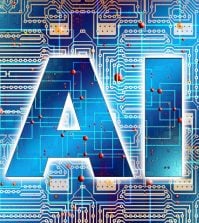President Trump signs fresh AI directive after revoking Biden order

The Trump administration has introduced an executive order that aims to solidify the US as the world leader in AI.
The ‘Removing barriers to American leadership in artificial intelligence’ order stated that it is the policy of the United States “to sustain and enhance America’s global AI dominance in order to promote human flourishing, economic competitiveness, and national security”.
In signing the order, Trump revoked “certain existing AI policies and directives” that he claimed acted as barriers to AI innovation. The order said removing them would clear the way for the country to “act decisively to retain global leadership in artificial intelligence”.
On his inauguration day on 20 January, Trump revoked a 2023 order signed by former president Joe Biden that sought to address the risks posed by AI to consumers, workers and national security.
Biden’s AI legacy
Biden’s order required tech companies to submit the results of tests performed on their AI systems to the US federal government before those systems were released.
It also called for government agencies to set AI testing standards that incorporated national security risks; for deepfakes to be watermarked; and applied pressure on intellectual property regulators and federal law enforcement agencies to revise the use of copyrighted works in AI training.
Trump’s executive order claimed that the previous administration had “hampered the private sector’s ability to innovate in AI by imposing government control over AI development and deployment”.
Read more: UK prime minister reveals plan for AI to ‘turbocharge every single element’ of government
The new order instructs officials to work on an action plan for achieving global AI dominance. Those tasked with delivering the plan – due in six months’ time – include the president for Science and Technology (APST), the special advisor for AI and Crypto, and the assistant to the president for National Security Affairs (APNSA).
These assignees are expected to work in coordination with the assistant to the president for Economic Policy, the assistant to the president for Domestic Policy, the director of the Office of Management and Budget (OMB), and “heads of such executive departments and agencies as the APST and APNSA deem relevant”.
The Stargate Project
On 22 January, Trump praised a group of tech firms joining forces on a venture known as The Stargate Project. Described by the president as “the largest AI infrastructure project by far in history”, the aim is to spend US$500bn over the next four years building the data centres and power production plants that the American AI industry relies on.
OpenAI, the company behind ChatGPT, will lead Stargate. It is working with funding partners Softbank, a Japanese investment firm, American multinational Oracle, and MGX, an Emirati sovereign wealth.
AI’s ‘Sputnik moment’
A new Chinese AI app called Deepseek sent shockwaves across the industry this month, prompting American venture capitalist Marc Andreessen to call the app’s R1 model AI’s “Sputnik moment”.
Deepseek’s R1 model – which overtook ChatGPT to become the most downloaded free app on Apple’s App Store in the US – was made significantly more cheaply than rival products. Its launch prompted a vast sell-off of major tech stocks, driven largely by doubts over America’s supposed lead position in AI.
Trump called the event “a wake-up call” for the US tech industry, though said the success of Deepseek suggested the US could take advantage of the same cost efficiencies.
“If you could do it cheaper, if you could do it [for] less [and] get to the same end result, I think that’s a good thing for us,” he told members of the press on board Air Force One.





















